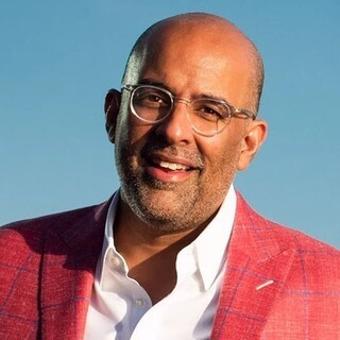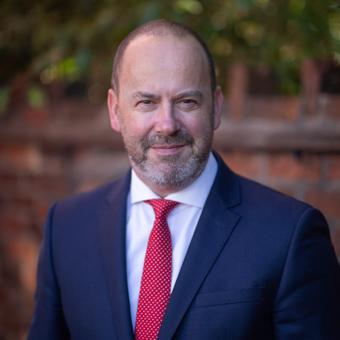In this week’s hot seat is Simon Swain, Head of Legal at Advanced Medical Solutions. Having spent time in Private Practice with Slaughter and May and DLA, the past 13 years have been spent in-house with a variety of organisations.
In this series, BCL Legal Co-Founder and In-house Managing Director, Mark Levine, finds out a bit more about how lawyers who work in-house have got to where they are, what they do, what they feel are important character traits to have... and what lawyers considering a move in-house should think about!
Simon, tell us more!
What / Who made you consider law as a career?
I was the first in my family to go to university, so there wasn’t really one person or occasion which made my want to be a lawyer.
I’d always thought it seemed an interesting and relatively academic profession, and was randomly fascinated by the televised Louise Woodward trial in the late 1990s. Corporate law isn’t quite the same, but ultimately it felt like a good career unless and until a better option came along - nothing has to date!
What do you enjoy most about working as an in-house lawyer?
The variety of work. On top of the day to day commercial work, I’ve worked on a number of acquisitions, participated in mediations and litigation, drafted policies and procedures, made governmental and regulatory submissions and provided advice to the business on matters as diverse as legal privilege, data protection, PLC requirements and commercial negotiation.
Every day is different and there are always opportunities to learn and develop your own experiences.
What attracted you to work for your current company?
A number of things, but the biggest attraction was the opportunity to manage a reasonably sizeable team and play a small part in developing the next generation of lawyers in a business that is very supportive of training and development.
I was lucky enough to inherit an excellent team, and we have done a lot of work over my time at Advanced Medical Solutions in ensuring that team can provide an even better service to the business, whilst also developing their own skills and experiences.
We even have a trainee who has just commenced her formal training contract with us.
What are the main deliverables of your role?
It honestly does vary from day to day, let alone year to year. Responsiveness and quality of advice are undoubtedly critical –everyone in the business is tasked with helping Advanced Medical Solutions thrive and grow, and Legal are certainly no different in that regard. This year I have also had specific deliverables around team development and progression, which is a part of the role I love. Ultimately though my deliverables would generally be as you would expect – ensuring the team provides strong legal support, in a timely manner, to benefit the business and help promote its long-term success.
What do you feel are the most important character traits of an in-house lawyer?
A positive mindset and a willingness to accept that legal risk will only ever be part of the overall picture.
No business can ever be risk free – a major part of the in-house lawyer role is to understand and manage that risk to the extent possible, but appreciate that the potential upside and wider commercial benefit can and should take precedence in certain situations.
When / If you look for new team members – what is most important to you and why? Ability or character?
Character. A base level of ability and experience is undoubtedly required, but I am of the view that specific skills can be taught and gained through experience if you’re able and willing to take the time to do so. Character can’t be taught in the same way – if someone is positive, proactive, willing to learn and is a good cultural fit for the business and the team then they have every chance to go a long way.
What would you say to any lawyer considering a move in-house?
Working in-house is fantastic, but it requires lawyers to quickly understand both the risks and benefits of positions and analyse them quickly.
No CEO or CFO wants to hear that “it depends” – they want you to give your opinion and advice based on your knowledge and experience of the law and the business. Make sure you understand the wider business, the key financial drivers and take the time to appreciate the risk appetite across different areas (e.g. commercial risk is likely to be very different to regulatory risk).
- Connect with Mark Levine on LinkedIn
- Connect with Simon Swain on LinkedIn









